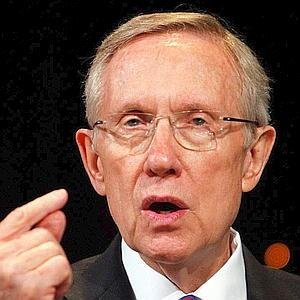Former U.S. Solicitor General: Reid/Kyl Poker Bill Could Be Unconstitutional

 With a draft bill legalizing online pokerin the United States circulating through the halls of Congress, experts from both sides of the aisle and all walks of life have weighed in. One of the most recent critiques of the bill, which was created by Senate Majority Leader Harry Reid(D-NV) and UIGEA proponent Jon Kyl (R-AZ), comes from former U.S. Solicitor General Paul Clement (pictured).
With a draft bill legalizing online pokerin the United States circulating through the halls of Congress, experts from both sides of the aisle and all walks of life have weighed in. One of the most recent critiques of the bill, which was created by Senate Majority Leader Harry Reid(D-NV) and UIGEA proponent Jon Kyl (R-AZ), comes from former U.S. Solicitor General Paul Clement (pictured).
According to the Las Vegas Review-Journal, “segments of the bill that seek to punish overseas providers that ran games in the United States and continued to take bets from U.S. players even after Congress enacted online restrictions in 2006″ could make the measure unconstitutional should it ever become law or be considered.
Remember, the Reid/Kyl bill penalizes operators who took bets from U.S. players after 2006 by not allowing them to apply for a gaming license for five years unless they can prove they did not violate U.S. law.
Clement summarized, “In my view, the 2012 act suffers from the exact same problems as the 2010 act, and in some instances, the 2012 act’s constitutional infirmities are even more pronounced.”
The Solicitor General under President George W. Bush added that due process could be trampled on. The Review-Journal recapped, “He said it would deprive the providers of ‘significant property interest’ and could be considered an unconstitutional ‘bill of attainder’because it effectively singles out a group for punishment without adequate protections for their rights.”
 The 2010 bill Clement referenced was a separate draft bill from Reid and Kyl. At the time, it was thought be added to a tax relief bill at the end of the Congressional session, but never came to fruition. This year, according to Poker Players Alliance (PPA) Executive Director John Pappas (pictured), a bill addressing the so-called fiscal cliff could be one of the only must-pass measures left in 2012.
The 2010 bill Clement referenced was a separate draft bill from Reid and Kyl. At the time, it was thought be added to a tax relief bill at the end of the Congressional session, but never came to fruition. This year, according to Poker Players Alliance (PPA) Executive Director John Pappas (pictured), a bill addressing the so-called fiscal cliff could be one of the only must-pass measures left in 2012.
State College at Buffalo Professor of Business Law Joseph Kelly has also been among those critiquing the draft bill. In a webinar conducted earlier this month with members of the internet gambling industry, Kelly advocated that the bill undergo the traditional legislative process rather than be attached as a rider: “This is the type of bill that should go before a Congressional committee. It should be marked up. If it can’t get approved by Congress, it should die a natural death.”
According to the Review-Journal, Clement’s analysis of the bill was done at the behest of the PPA, the main lobbying voice for poker players on Capitol Hill. The same news outlet pointed out that the PPA “also has called for changes in the Reid/Kyl draft. Among them: relaxed restrictions on overseas providers and broadening the landscape so U.S. players can compete against counterparts from other countries.”
 Reid (pictured) told the National Journal, “We don’t have a path forward right now, but we’re working,” when asked for the state of the bill. All legislation not passed before the new Congress takes office in early 2013 will be deemed dead and must be reintroduced.
Reid (pictured) told the National Journal, “We don’t have a path forward right now, but we’re working,” when asked for the state of the bill. All legislation not passed before the new Congress takes office in early 2013 will be deemed dead and must be reintroduced.
As part of its acquisition of Full Tiltand payment of nearly three-quarters of a billion dollars, PokerStarssigned an agreement allowing it to return to the U.S. should legal online gaming exist at the state or Federal level. Other online poker firms that have crafted similar agreements with the U.S. Government include PartyPokerand Absolute Poker. Whether any of these outlets would actually receive a license remains to be seen.
Clement also raised concerns over the online poker bill’s stance on state’s rights. The Las Vegas Sun quoted him as saying, “While allowing a state to decide to participate in the Federal licensing scheme through the state’s normal legislative process respects state sovereignty and longstanding principles of federalism, mandating that ‘a majority of a quorum of each chamber of the legislature’ is all that is require to opt in or out disregards both. It raises a distinct concern that the court would invalidate it on federalism grounds.”
How the situation will play out is up in the air. The first step would be the formal introduction of the Reid/Kyl bill, which could happen as early as next week when Congress reconvenes following the Thanksgiving holiday.
Keep it tuned to PocketFives for the latest poker legislation news.
Want the latest poker headlines and interviews? Follow PocketFives on Twitterand Like PocketFives on Facebook. You can also subscribe to our RSS feed.




